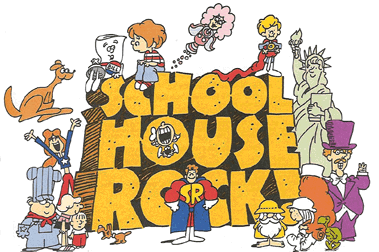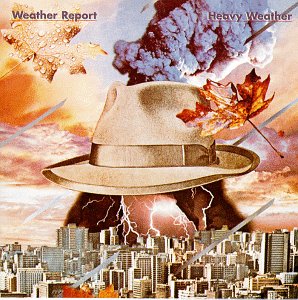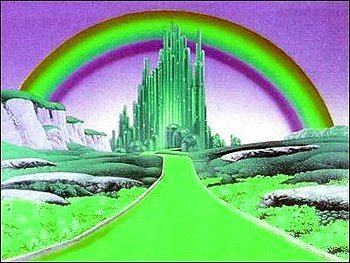- Air Homepage
- About Us
- Science Songs
Examples of science songs
Science songs are popular these days - songs that explain basic science to kids in a clever, musical way. As with the old saying In 1492 Columbus sailed the ocean blue, these songs help students remember what they need to know to pass their tests and learn the material.
Here is one I would like to sing for you! It has a good beat and you can dance to it; check it out:Like it? I've got lots more on the Youtube piano channel I created.
The rhyme and rhythm of a song make it easy to remember the lyrics, especially if they're catchy. You need something catchy in your song if you want people to remember it. Songwriters call it a hook.
Teachers sometimes write science songs by parodying familiar tunes with scientific lyrics. If you search the web, you might find a version of the "Archies" song Sugar, Sugar.
It's called Glucose, Glucose and teaches sugar metabolism! That's an interesting twist! It was a regular feature on Bill Nye the Science Guy's show. Another example.
A series of short videos called Schoolhouse Rock, now owned by Disney, had great science songs. Featuring titles like Interplanet Janet and Electricity, Electricity, they were composed by Bob Dorough (jazz) and Lynn Ahrens (folk). There were some about computers, weather, math, and other stuff. These were the scientific titles:
- The Body Machine (nutrition)
- Do The Circulation (anatomy - cardiovascular system)
- Electricity, Electricity (umm...electricity)
- The Energy Blues (energy conservation before global warming was an issue)
- Interplanet Janet (solar system)
- Telegraph Line (anatomy - nervous system)
- Them Not-So-Dry Bones (anatomy - skeletal system)
- A Victim of Gravity (gravity)
- The Weather Show (Weather)
- Scooter Computer & Mr. Chips (four songs about computers)
Are there any science songs about the weather?
Do you remember the first two words in the Sesame Street theme? The Beach Boys wrote several songs about sun. Over the years, how many songs have been written about rain?
Yeah, a lot! Rain is a symbol of sadness and unfulfilled dreams. The Carpenters' Rainy Days and Mondays comes to mind.
It's also possible to have a happy time even in the rain, like in Fred Astaire's movie Singing in the Rain. One of these songs could be reworked by a clever science teacher to teach facts about inclement weather. Here's a clever lyric sample about rain:
"Thinking about rain,
I'm thinking about rain,
how the water dries up and then falls down again.
The water cycle's plain -
when it goes down the drain,
That water will someday fall again as rain."
This example comes from Barbara Wood of Mountain Grove, Missouri.
Science songs are a great way to help students remember science facts. Put those dry bits of information to music.
Now that AI programs like ChatGPT exist...
...we can compose song lyrics in seconds on any subject. Follow these steps to write specific and/or sophisticated song lyrics using ChatGPT:
- Your song should have a general theme or idea. It could be a feeling, a story, or a message.
- You can use this AI service to generate lyrics based on your theme or idea. ChatGPT can generate lyrics based on keywords or phrases related to your theme.
- Then edit and refine the generated lyrics. You can change the order of phrases, add or remove words, or adjust the language.
- Make your lyrics more poetic and impactful with metaphors, similes, and other literary devices. Using AI can help you come up with ideas, but you might also want to consult a thesaurus or other resources.
- Try different melodies and chord progressions to find one that fits your lyrics. Creating the music for your song can be done with music composition software such as a digital-audio-workstation (DAW) or with a musician or producer.
You can also use it to compose original music, just follow these steps:
- You should start with a basic idea or concept. It could be a mood, a theme, a genre, or a specific instrument.
- Use ChatGPT to come up with melodies, chord progressions, and lyrics based on your concept. It can generate music based on keywords or phrases related to your concept.
- Refine the music generated by the AI. Adjust the tempo, key, and instrumentation, and add or remove sections to make it your own.
- Consider collaborating with a musician or producer to add more instrumentation, vocals, or other elements. They can help you bring your vision to life and add their own creativity.
- Again, use music production software or a recording studio to record and produce your composition. Add effects, mix the audio, and adjust the levels to make it sound good.
You can use ChatGPT to generate specific and sophisticated song lyrics, but you need to edit and refine them to fit your style and tone. You can create a song that's both lyrically and musically compelling by using literary devices and experimenting with different arrangements.
If you try using it for the music itself, you might need to "tune" it up to fit your desired style and structure. You can make a professional-sounding composition by collaborating with other musicians and producers and sing music production software.
Search this site for more information now.
You might see special results at the top of the page, above the word WEB. They're ads, but they might be important to you. Happy searching!
Navigate from Science Songs to the
Weather Man web page now.
Is there a science song that you can recall?
Kids are more likely to remember science facts when they hear science songs. Why? One of the benefits of musical elements is that they assist in memory retention.
Do you have concerns about air pollution in your area??
Perhaps modelling air pollution will provide the answers to your question.
That is what I do on a full-time basis. Find out if it is necessary for your project.
Have your Say...
on the StuffintheAir facebook page
Other topics listed in these guides:
The Stuff-in-the-Air Site Map
And,
Thank you to my research and writing assistants, ChatGPT and WordTune, as well as Wombo and others for the images.
GPT-4, OpenAI's large-scale language generation model (and others provided by Google and Meta), helped generate this text. As soon as draft language is generated, the author reviews, edits, and revises it to their own liking and is responsible for the content.





New! Comments
Do you like what you see here? Please let us know in the box below.